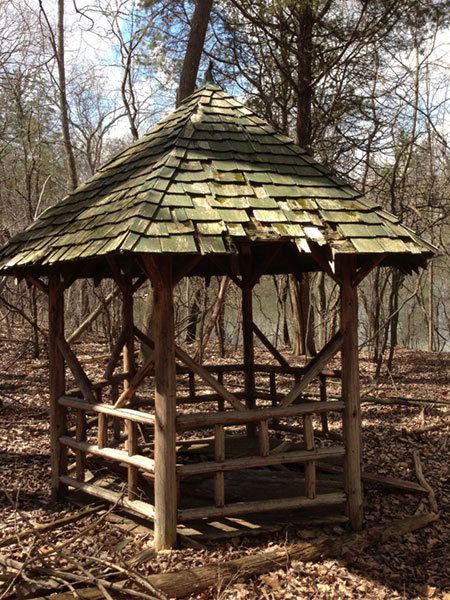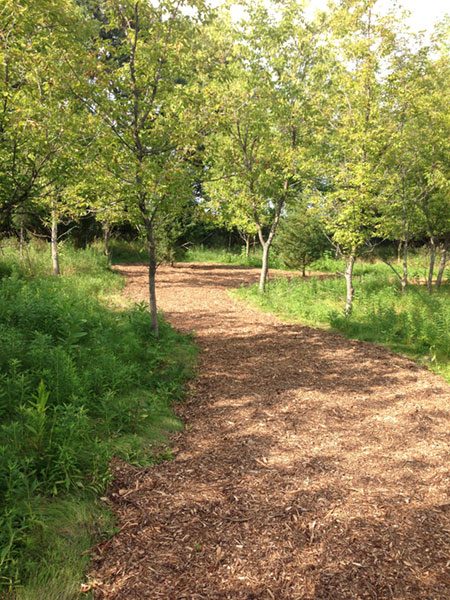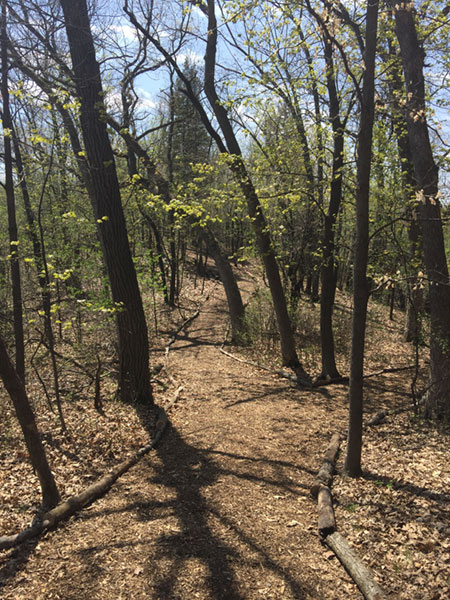
Rogers as a good environmental steward
07/06/17 05:17:pmFrom its earliest days when Theresa Rogers managed gardens and farmland that helped feed those being treated, care of the environment and appreciation of nature have been part of the Rogers experience.
In recent years, Rogers Behavioral Health has committed to a multi-year land management plan that includes protection of the natural environment and enhancement of our grounds for benefit of our patients, families and staff.

One of the biggest projects is working to eradicate invasive plants such as buckthorn trees, garlic mustard, and Amur honeysuckle. It’s important to tackle these persistent plants because overgrowth can alter ecosystems and destroy the native environment if not addressed. An added benefit is that the buckthorn can be transformed into beautiful furniture. The landscape architect who worked on the land management project and several therapeutic landscapes for Rogers made this table from some of the buckthorn branches that were cut.
Enjoyment of nature
In addition to helping the Rogers system to be good environmental stewards, the plan enhances the usability and enjoyment of the more than 80 acres that are part of the Oconomowoc properties. With at least 50 acres of woodlands, patients, families and staff can use the beautiful walking trails. At Cedar Ridge, the trail was outlined with fallen or cut logs to encourage OCD residents as they bravely expose themselves to walking through the woods. At Delafield the winding trails are mowed into the prairie grass field so that residents can enjoy wildflowers and the monarch butterflies which feed on the milkweed.
There is plenty of research to demonstrate the benefits of spending time in nature. In fact, in Japan, where shinrin-yoku, or “forest bathing” is a part of its national health program, people are encouraged to connect with nature by going to the woods and breathing deeply. Researchers have found health benefits including lowered blood pressure, blood glucose levels, and stress hormones.
Those results would be no surprise to Dr. Arthur Rogers and his wife Theresa, who found solace in the nature and shared it with the early guests of the Oconomowoc Health Resort. One hundred ten years later, the natural environment at Rogers is still bringing respite and healing to those seeking and providing care here.








